Sébastien Garbarino, Coordinator Horizon Europe for RSRI Québec, explains how Industrial Research Sector Groups are helping to accelerate research and innovation in Québec.
To follow up on the contribution from the Québec Government in the December 2024 edition of The Innovation Platform, and illustrate the deep collaborative vision of the Québec government to support industrial innovation, this article will explore RSRI Québec (Industrial Research Sector Groups) and offer a deep dive into the diverse Québec innovation ecosystems, constantly supported by the historical contribution of these RSRI which already bridge Europe and North America.
RSRI is supporting Québec organisations to connect, animate, support, fund, manage, communicate, and disseminate about collaborative projects between industry and public research centres based throughout the whole province. Each strategic industrial sector is levelled up by a corresponding RSRI, with some transversal ones to improve and ensure transdisciplinary projects.
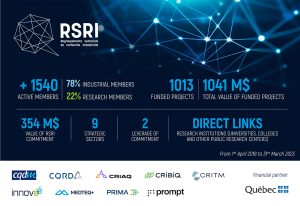
Canada and Horizon Europe
As of July 2024, Canada became an associated member of Pillar II of Horizon Europe. This means Canadian researchers and innovators can now participate in collaborative research and development projects under this specific Pillar II of the European Union’s research and innovation programme.
In Pillar II of Horizon Europe, the denominated six clusters are in sharp coherence/resonance with the RSRI Québec thematics (advanced materials, aerospace, aluminium, biotechnologies, electric energy, information and communication technologies, metallic transformation, medical technologies, biopharmaceutics), which demonstrate the similar goals and strategic issues between Europe and Québec and ease the identification for collaboration and partnerships. Horizon Europe consortia should definitely benefit from these RSRI as the gateway towards 1,500+ entities (mostly SMEs), all of them already convinced and propelled by the thrust of collaborative research projects.
With a mandate to foster innovation, research, and collaboration among industry players, academic institutions, and government bodies, RSRIs aim to support the development and commercialisation of innovation and enhance the competitiveness of Québec’s industrial sectors, and stimulate economic growth by facilitating access to resources, expertise, and funding opportunities. More than simply managing and supporting industrial research consortia, RSRI Québec has accumulated a deep knowledge of available academic expertise, industrial stakes, needs and outcomes of its existing partnerships or legal agreements with Europe, and deals daily with public accountability.
RSRI co-ordinates, structures and manages hundreds of collaborative projects led by Québec companies and research institutions with international collaboration and outreach. Here is a collection of expertise and examples of how and why Québec is ready to integrate Horizon Europe consortia. With its invaluable knowledge of the available academic expertise and cutting-edge research infrastructures, RSRI is an ideal matchmaker for addressing businesses’ needs, from TRL 1 to TRL 9 collaborative projects with companies.
Alongside its central position inside the innovation triangle (industry-research-government), crucial for performing innovation actions, RSRI is the gravity centre for initiating, supporting, managing and funding industrial research projects and tying these projects together with other strategic initiatives like Québec innovation zones (Quantum, Digital, Aerospace, Energy Transition). With its agile structures, RSRI specialises in due diligence, public accountability, legal agreements and government affairs, budget monitoring and global outreach.
Having built widespread recognition and outreach over many years, RSRI quickly became the single gateway to access Research & Development & Innovation strategic Québec sectors and through the rest of Canada.
With its experience of managing complex collaborative projects, RSRI has proudly demonstrated its leverage to thrust innovation and can co-ordinate, support and manage work packages from innovation leaders, members or even partners. It is also able to share its strengths in terms of dissemination, communication, and outreach capabilities.
From the emulation of Québec’s government, a co-ordinator for Horizon Europe has been mandated to connect each of the above-mentioned RSRI, which has a dedicated resource for international collaboration. The co-ordinator will therefore be able to steer towards the appropriate RSRI and its respective members (both companies and research institutions), ready to jump on proposals involving European Member States and other associated countries. Amongst others, the Horizon Europe co-ordinator will raise awareness among stakeholders of the RSRI networks for projects within the framework of the Horizon Europe programme; identify priority research areas and target relevant funding opportunities in Pillar II of the programme with which Canada is associated, as well as with potential Québec partners; support companies and research centres in research, partnerships, project development, and/or project submission processes; work closely with various stakeholders to prepare status reports and formulate proposals for better alignment between Québec’s strategic objectives and those of the European Union.
For business with Québec, RSRI windows are wide open to together building safe and sustainable innovation through international collaboration for solving societal challenges, delivering global impacts, and allowing green and digital transitions to create a more resilient and inclusive society. Simply remember RSRI Québec as the eager beavers for building such collaborative innovation projects with Québec and Canada.
RSRIs support Québec’s leading sectors by investing in collaborative research projects. The remainder of the article will explore these projects.

CQDM is a Canadian not-for-profit biopharmaceutical research consortium that supports collaborative R&D aimed at translating innovative technologies into solutions for unmet medical needs. CQDM champions high-impact translational research, fosters strategic collaborations, and reduces innovation risks to expedite the development of cutting-edge therapies. The consortium’s strategic priorities cover a broad range of therapeutic indications and innovative targeting approaches, including personalised medicine, RNA-based technologies, radiopharmaceuticals, AI-health technologies, and much more.
By leveraging insights from global pharma members, CQDM identifies and supports emerging industry trends addressing areas of high unmet need. It offers non-dilutive funding for innovative projects and connects Canadian biotech companies with global industry leaders and researchers with specialised expertise and advanced skills. To date, CQDM has supported and co-ordinated over 160 collaborative R&D projects involving 13 global pharmaceutical societies, 56 Canadian higher education institutions, and 133 promising start-ups and SMEs.
CQDM engages its ecosystem through the organisation of networking events and strategic initiatives that foster local and global partnerships, enhancing collaboration and innovation. As a partner in Horizon Europe’s ‘Health’ cluster, CQDM is uniquely positioned to co-ordinate biopharmaceutical consortiums and link key Canadian partners with international leaders to advance impactful and innovative technologies responding to unmet medical needs.
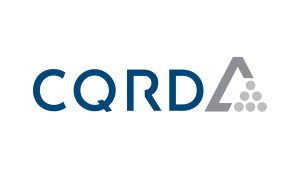
CQRDA supports companies and research centres that generate innovations through and for the use of aluminium in collaborative R&D projects that contribute to Québec’s development. Key areas focus on the development of aluminium equipment and technology, implementation of new technology at SME level, and promoting and developing new applications for the industry.
There are nine aluminium smelters in Québec, producing some three million tonnes of aluminium annually. It is the world’s fourth largest producer of primary aluminium, generating nearly 30,000 jobs, including more than 8,000 in primary aluminium production. Québec’s aluminium industry is made up of five categories of players:
Primary aluminium producers
Equipment manufacturers and specialised suppliers
Transformers, by means of a metallurgical operation or
assembly activity
Public and private research centres
Industry organisations
Aluminium can play a strategic key role in several of Horizon Europe’s Pillar II thematic clusters. CQRDA and its members are already developing in various sectors identified: technological innovation, green transition and decarbonisation, AI, additive manufacturing (3D printing), aluminium recycling projects, optimising secondary material flows, developing new lightweight, sustainable and recyclable alloys for aeronautics, space, automotive and electronics, batteries, inert anode technology, use in infrastructures, emergency vehicles, and food packaging.
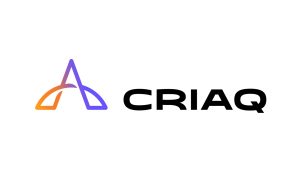
Created in 2002, the Consortium for Research and Innovation in Aerospace in Québec (CRIAQ) is a unique model of collaborative aerospace research involving companies of all sizes, universities, and research centres. Its mission is to enhance the competitiveness of the Québec aerospace industry by stimulating technological innovation and corporate engagement through collaborative R&D with local and international scope.
The projects are aligned with three major vectors of technological change and transition that highlight the key issues to be addressed: Sustainable Aerospace, Advanced Air Mobility and Digital Aviation Systems. Each of these outlines its own challenges and courses of action, based on the technological clusters and trajectories to be explored to guide research and innovation and accelerate transitions towards 2035 and beyond. Supported by the Québec government, CRIAQ helps the industry to access public funding programmes, both provincial and federal, thereby substantially leveraging private investment.
As of June 2025, CRIAQ represents: 150 members, 60 active projects, for a total value of C$80m, bringing its portfolio of projects financed since its creation to over 260. The Consortium also aims to develop a new generation of innovators to reinforce Québec’s technological leadership in cutting-edge aerospace applications, which also involve international partners.

CRIBIQ’s mission is to stimulate the development of Québec’s industries by using the bioeconomy as a lever for competitiveness. It identifies high-potential intervention areas where innovative industries, scientific communities, and sectoral experts converge. It supports innovative and collaborative industrial projects across agri-food, industrial biotechnology, and marine biotechnology value chains. Its focus includes sustainable food processing, co-product valorisation, natural ingredients, biomaterials, byproducts, bioenergy, marine biomass, aquaculture, and marine bioactive. Cross-cutting themes are decarbonisation, circular economy, and scaling bioprocessing innovations.
CRIBIQ brings together industries, academia, research centres, and government partners to drive bio-based competitiveness. We have conducted multiple international missions and supported projects with international partners, enhancing Québec’s positioning in the global bioeconomy. Internationally, we are recognised as a strategic North American partner for bioeconomy collaborations, decarbonisation, marine biotechnology, and circular value chains.
For Horizon Europe, we seek collaborations under Cluster 6 (food systems, bioeconomy, marine resources) and Cluster 4 (advanced biomaterials, bioprocessing). We prioritise sustainable proteins, marine biomass valorisation, CO₂ utilisation, and circular bioeconomy solutions, aligning Québec’s innovation strengths with EU missions in climate, oceans, and food security to create impactful partnerships.
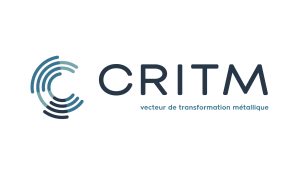
The Consortium of Research and Innovation in Metal Transformation (CRITM) is a specialised sector-based group focused on industrial research and innovation. It specifically offers strategic support and financial assistance to companies and research centres. This recognised organisation boasts 161 regular members (including 124 companies) and maintains strong ties with the 415 members of the Scientific Research Network for Critical and Strategic Minerals, the 268 affiliated members of CRITM (Transal and AMQ), and, on the European side, with the 300 members of the French competitiveness cluster AVENIA.
The CRITM management team supports all applicants in one of the following four areas of intervention:
Development of transformation processes
Design of advanced metal products
Digital innovation
Reducing the ecological footprint (eco-responsibility)
CRITM specialises in partnerships that require multiple scientific or financial organisations, which also require experts in critical and strategic minerals, exploration, processes, primary, secondary, and tertiary processing, and recycling. Finally, CRITM places particular emphasis on ESG and circular economy aspects in all its projects. It is therefore seeking Canadian and global partners with this in mind.
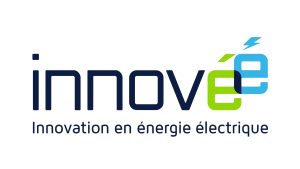
InnovÉÉ’s mission is to support and fund collaborative projects in electrical innovation. The organisation is dedicated to modernising smart grids, electrifying transportation, and developing smart vehicles and transport systems. By pooling the expertise and resources of industrial partners and research institutions, InnovÉÉ is building a dynamic and innovative ecosystem. Through strategic national and international partnerships, InnovÉÉ fosters knowledge exchange, positioning Québec as a global leader in electrical technologies.
InnovÉÉ’s robust strategic alliances – both nationally and internationally, notably with Pôle Médée, l’Agence de l’innovation pour les Transports and Tenerrdis – solidify its global presence.
Within Horizon Europe, InnovÉÉ takes a proactive role, notably by positioning itself in Cluster 5 (Climate, Energy and Mobility) of Pillar II. The organisation also actively participates in the ModalShift project, which aims to optimise multimodal transport networks and traffic management through innovation and collaboration.
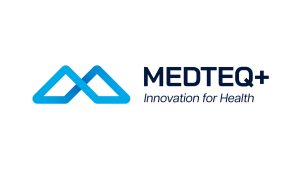
Powered by collaboration, MEDTEQ+ helps Canadian health technology companies to bring their innovations to market, accelerates economic growth and contributes to improving the health of the population. Its main objective has always been to accompany entrepreneurs through the innovation cycle, from concept to commercialisation, for the greater benefit of the population. With its unique expertise, strong network and distinctive service offering, MEDTEQ+ is a world-class Canadian reference in the field of health technologies.
Since its creation, MEDTEQ+ has made a tangible impact by implementing more than 460 innovations in various fields; creating or maintaining more than 1,800 jobs, publishing more than 500 publications, supporting more than 92 companies and investing in 24 companies with nearly 300 co-investors for more than C$145m. As part of the Horizon Europe programme, it supports the completion of consortia being formed through its network of companies, researchers and clinicians across medtech-related themes. It also brings its expertise in project structuring and offers review support during the submission process.
With a strong network of 157 members, MEDTEQ+ brings together researchers, companies and clinicians to create an innovation ecosystem where tomorrow’s medical technologies come to life.
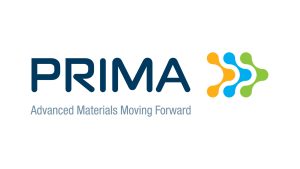
PRIMA Québec, the Advanced Materials Research and Innovation hub, supports and facilitates the advanced materials ecosystem by promoting collaborative innovation for the economic development of Québec. It is the privileged catalyst between the industrial (190 industrial members) and research communities (31 research centres).
PRIMA internationally partners with various consortia and agencies to benefit from valuable complementary expertise. Examples include co-funded European proposals such as M-ERA.NET, ERA.MIN 3, and with the National Research Foundation of Korea (NRF).
PRIMA is member of the Innovative Advanced Materials Initiative (IAM-I) association, a collaborative Europe-wide research and innovation ecosystem that significantly accelerates the time-to-market of sustainable innovative advanced materials (IAMs) and associated technologies to target sustainable advanced materials and associated technologies for a green, digital, and circular economy.
PRIMA supports many innovative SMEs, which will have positive impacts for clusters 4, 5 and 6 (non exhaustive) of Pillar II of Horizon Europe. This involves sensitive calls within Horizon Europe, Deep tech and Clean tech for the Net Zero Industry Act, as well as for the CRM Act (Critical and Raw Materials), Ecodesign for Sustainable Products Regulation (ESPR), SSbD (Safe and Sustainable by Design), or enhanced circularity as illustrated inside the PRIMA roadmap (Ambition 2035).

PROMPT contributes to Québec’s socio-economic development by stimulating innovation in digital technologies. Its financing programmes support companies (SMEs) and the academic community in carrying out innovation and research projects, while encouraging the collaborative model. As a catalyst for innovation, PROMPT fosters the development of technological solutions essential to meeting contemporary societal challenges. Cybersecurity, manufacturing productivity, artificial intelligence and quantum are its strategic pillars.
Collaborating with PROMPT gives you access to 5,000 organisations, 10,000 professionals, with as many as 500 projects already managed and funded for everything that generates, transmits, captures, and uses data, both microelectronics and software: AI, quantum, optics, photonics, telecom, innovative manufacturing and productivity, defence, cyber, smart cities, logistics, transport.
PROMPT’s activities help position Québec as a key player in technological innovation worldwide.
Please note, this article will also appear in the 23rd edition of our quarterly publication.
Source link

